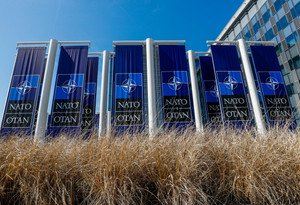Oil rises on easing Omicron fears and Iran delay
Published by Jessica Weisman-Pitts
Posted on December 7, 2021
2 min readLast updated: January 28, 2026

Published by Jessica Weisman-Pitts
Posted on December 7, 2021
2 min readLast updated: January 28, 2026

Oil prices rise as Omicron concerns ease and Iran talks delay. Brent and WTI crude futures see gains, supported by OPEC+ output decisions.
By Noah Browning
LONDON (Reuters) – Oil prices rose on Tuesday, extending the previous day’s almost 5% rebound as concerns over the impact of the Omicron coronavirus variant on global fuel demand eased and Iran nuclear talks stalled, delaying the return of Iranian crude.
Brent crude futures were up $1.49, or 2%, at $74.57 a barrel by 1430 GMT, having registered a 4.6% gain on Monday. U.S. West Texas Intermediate crude was up $1.71, or 2.5%, at $71.20, building on a 4.9% gain in the previous session.
Oil prices were pummelled last week by concerns that vaccines might be less effective against the Omicron variant, sparking fears that governments could impose fresh restrictions to curb its spread and hit global growth and oil demand.
However, a South African health official reported over the weekend that Omicron cases there had shown only mild symptoms. Also, the top U.S. infectious disease official, Anthony Fauci, told CNN that “it does not look like there’s a great degree of severity” so far.
“The oil market is experiencing some early Christmas cheer today, extending its recent run of gains thanks to rising optimism surrounding the Omicron variant and its potential impact on demand in the remainder of this year and the first half of 2022,” said Rystad Energy oil analyst Louise Dickson.
In another sign of confidence in oil demand, the world’s top exporter, Saudi Arabia, raised monthly crude prices on Sunday.
That came after the Organization of the Petroleum Exporting Countries (OPEC) and its allies, a group known as OPEC+, agreed to continue raising output by 400,000 barrels per day (bpd) in January despite the release of U.S. strategic petroleum reserves.
Meanwhile, a Reuters poll showed that U.S. crude inventories are likely to have fallen for a second straight week last week. [EIA/S]
Oil prices were also supported by delays to the return of Iranian oil, with indirect nuclear talks between the United States and Iran having hit stumbling blocks. Germany urged Iran on Monday to present realistic proposals in talks over its nuclear programme.
(Reporting by Noah Browning; Additional reporting by Florence Tan; Editing by Jan Harvey and David Goodman)
The article discusses the rise in oil prices due to easing concerns over the Omicron variant and delays in Iran nuclear talks.
Initial fears about Omicron's impact on demand caused a drop, but easing concerns have led to a price rebound.
Delays in Iran nuclear talks have stalled the return of Iranian crude, affecting global supply and prices.
Explore more articles in the Investing category











